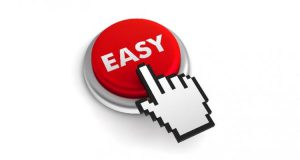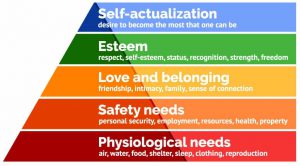Inconveniently Convenient
by Mario Carrera
 Has convenience made our life better or worse? Most would argue that convenience has made our life better but what about the negative side of convenience? Have we paid enough thought to the associated effects? Our search for the elusive authentic self may be hampered by the ease of doing other things. Tough situations reveal our true selves.
Has convenience made our life better or worse? Most would argue that convenience has made our life better but what about the negative side of convenience? Have we paid enough thought to the associated effects? Our search for the elusive authentic self may be hampered by the ease of doing other things. Tough situations reveal our true selves.
The world is coming to grips with some of the effects, in the form of plastic pollution and climate change. Yes, the adverse effects are that great, but are we seeing the negative consequences of making things more convenient or are we seeing it as a result of progress/advancement? I would argue that convenience has a lot more negative effects than we are willing to admit and by making things less convenient, we could make our lives healthier and better. Both physically and mentally if not also spiritually.
One of the most noticeable effects of convenience is the lack of planning abilities in younger individuals. Having to “go get the groceries” once a week or once a month meant that a family needed to think ahead for the month. That idea of preparing for the future transfers into other areas of life such as business. Hence the questions, “what next?” or “what if something goes wrong?” People had a greater awareness of the consequences of their actions. Whereas now, there seems to be the need for reminders that actions have effects.
In case of emergencies, there is greater need. Intermittent electricity can cause greater stockpiles of food, batteries, candles, and other emergency supplies. However in 2015 there was a massive blackout in Kuwait but in my 20 story apartment building only about four people had lamps/candles/torches. Two were families and two were military personnel.
Previously relationships had stronger bonds. We are not able to make interactions meaningful with shallow connections. With social media, we are more connected yet more alone. Conversations and getting to know the person versus what the person appears to be doing or likes, has become the way relationships work.
 With improved health, diseases and viruses that previously caused death are now minor irritants. Although there has been an increase in sexually transmitted infections surprisingly among the middle age and older.- making up for lost youth? Abortion, the morning after pill, and contraception have their uses, but like a two-edged sword this can mean that associated sexual responsibility is mostly cut.
With improved health, diseases and viruses that previously caused death are now minor irritants. Although there has been an increase in sexually transmitted infections surprisingly among the middle age and older.- making up for lost youth? Abortion, the morning after pill, and contraception have their uses, but like a two-edged sword this can mean that associated sexual responsibility is mostly cut.
Driving, too, has become easier. Newer cars make driving easy, yet accidents have not decreased. One reason is that drivers are too relaxed and easily lose focus whilst driving. Some manufacturers have even tried having traditional engine sounds built into electric cars to keep the driver’s focus on driving. Try driving a 1970’s Land Rover Defender and then move on to a Prius – the contrast is jarring.
Convenience has delivered many benefits and should be encouraged but the downsides should also be highlighted. Living skills such as planning and awareness of our environment have decreased. Perhaps having less convenience might be the way to go? The slow food movement is one of the many instances of making do without convenience that has shown what we are missing.
Greater convenience has led to responsibility being reduced and personal growth through connections stymied. Having access has not necessarily made us better beings. That search for Maslow’s self-actualization continues.
Some say humanity requires discomfort. Not being a sadist, I would suggest that humanity needs greater awareness. Spend the time to understand what we are doing and why? What are the consequences of our actions? Greater awareness can lead to greater creativity and better use of convenience.
